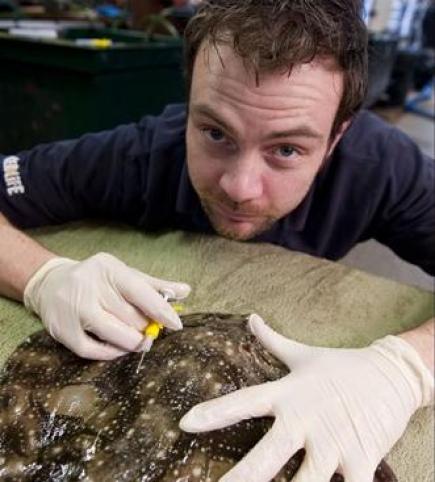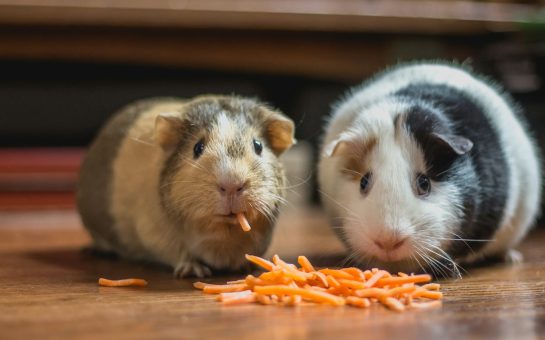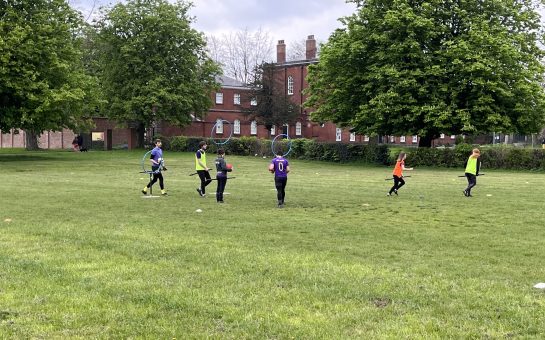Manchester University scientists are mapping the genes of the endangered Undulate ray to save the exotic species from extinction.
Scientists plan to match genetically diverse captive species of the ray in the UK in order to produce healthy offspring that can be reintroduced into the wild.
This unique species has been endangered by previously allowed commercial fishing practises and can be found in the UK waters of the Atlantic as well as the Mediterranean Sea.
The Undulate ray is on the IUCN (International Union for the Conservation of Nature) Red List of Threatened Species.

MATCH-MAKER: Manchester scientists are trying to save the exotic species
Evolutionary biologist Dr John Fitzpatrick, in charge of the Manchester team, said: “This approach has never been used to aid captive breeding in sharks and rays before.
“It is exciting for myself and my students to be working on a project with such a worthwhile practical application as well as strong scientific value.”
Dr Fitzpatrick’s team are working with the Sea Life Centre to create ‘stud books’ and microchip rays with their genetic information.
“Specifically, our goal is to help maintain high levels of genetic diversity within the captive population of Undulate rays and to prevent breeding between close relatives whenever possible.”
PhD student Graeme Fox who is part of the Manchester team added: “If it is found that the shrinking population has led to localised inbreeding it would sound alarm bells for the future survival of an iconic species in our waters.”
Manager of the European breeding programme Jean-Denis Hibbitt is working on the project at Weymouth Sea Life Centre, he believes this education could help to save the ray.
“The first objective of the breeding programme is to provide Undulate rays for public display to help raise awareness of their plight,” he explained.
“This added awareness and the ability for people to identify the species, will subsequently allow them to question whether illegally landed rays are on sale in their local fishmonger.”
SeaLife Blackpool has been one of the locations for 29 successful births at 10 different aquariums in the UK since the programme began.
Mr Hibbitt added: “If numbers in the wild fall to a critical level it is feasible we could help with a reintroduction programme.”
Dr Fitzpatrick believes that they will have gathered the genetic information for all the captive rays within two years.
He said: “Achieving this goal will contribute towards the long term management of Undulate rays in captivity and allow us to compare the genetic health of captive and wild populations of Undulate rays.”
Mr Fox added: “Our hope is that this data will enable Sea Life to plan the optimum management strategy to secure the genetic health of this beautiful and sadly increasingly scarce species.”
Wildlife charities are calling for more designated Marine Conservation Zones (MCZs) to protect vulnerable sea life like the undulate ray after 27 sites were announced in November 2013.
To learn more about protecting the undulate ray visit The Shark Trust website.
Main image courtesy of Peter Smithson, with thanks



